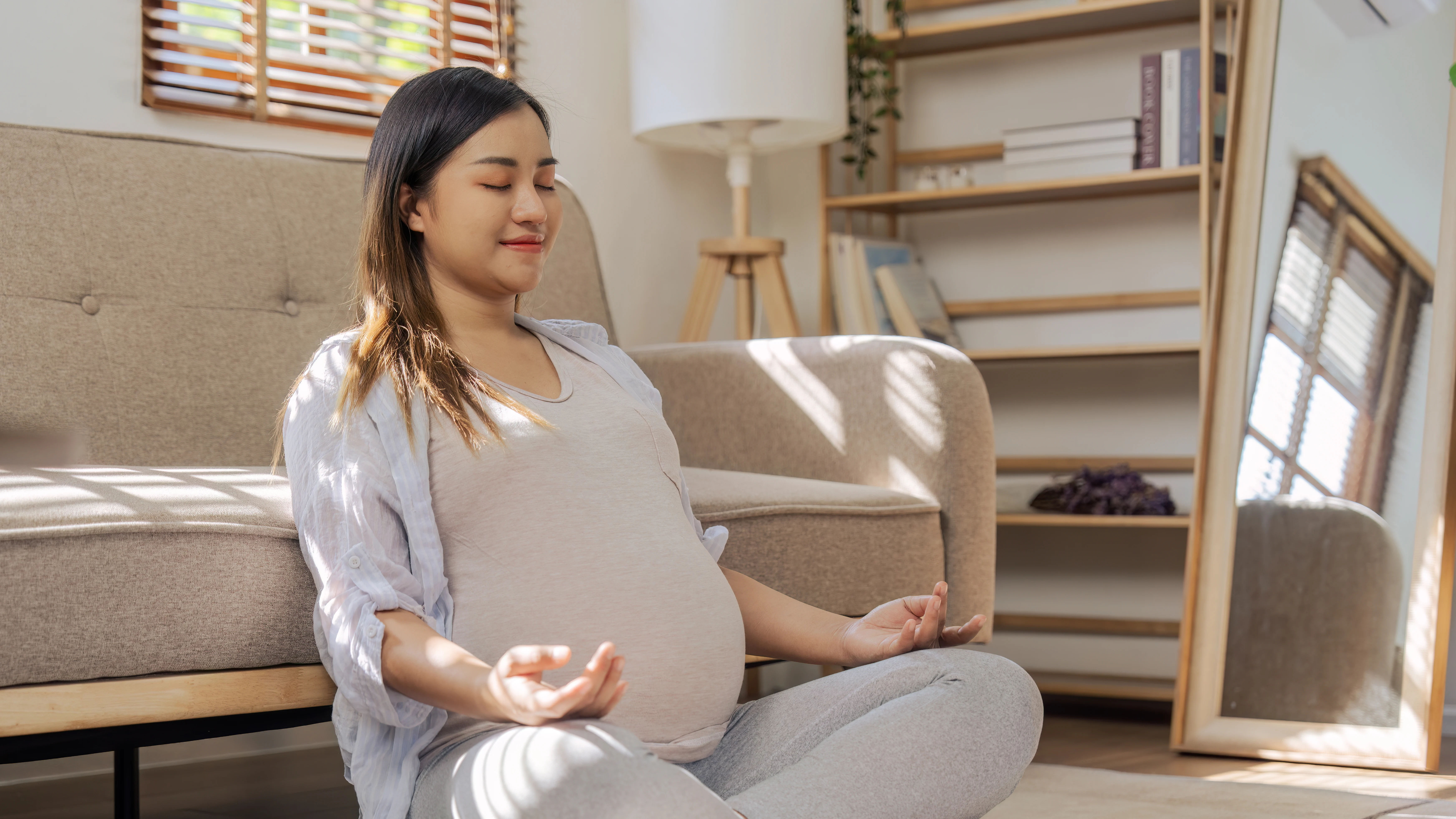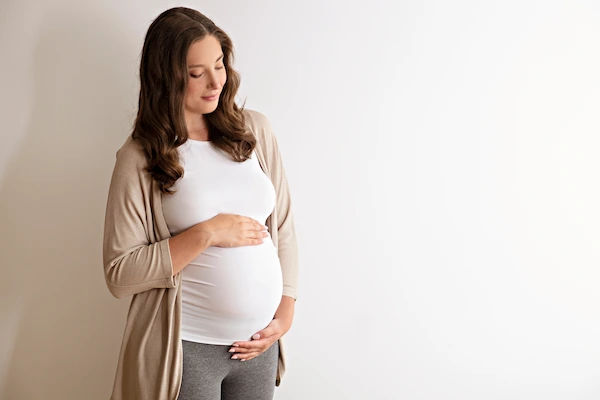Early Pregnancy Symptoms and Testing Information
Know about pregnancy, common early pregnancy symptoms, when to take it, types of pregnancy tests and result interpretation.

Written by Dr. Mohammed Kamran
Reviewed by Dr. Rohinipriyanka Pondugula MBBS
Last updated on 13th Jan, 2026

Introduction
Pregnancy is a beautiful milestone, but it’s natural to feel a mix of excitement, curiosity, and even a little nervousness. Recognising early pregnancy symptoms and knowing when and how to test can help you take the right steps toward a healthy pregnancy journey.
This article will guide you through common early pregnancy signs, when to take a test, and what to do next, all in simple, easy-to-understand language.
Consult a Gynaecologist for Personalised Advice
Common Early Pregnancy Symptoms
Every woman’s body is different, but some common early signs of pregnancy include:
1. Missed Period
- A missed period is often the first sign that makes women suspect pregnancy. However, stress, hormonal changes, or
other health conditions can also cause delays.
2. Tender or Swollen Breasts
- Hormonal changes can make your breasts feel sore, sensitive, or fuller than usual—similar to how they might feel before your period, but often more intense.
3. Fatigue
- Feeling unusually tired? Your body is working hard to support a growing baby, which can leave you exhausted even in
the early weeks.
4. Nausea (Morning Sickness)
- Nausea, with or without vomiting, can start as early as two weeks after conception. Despite the name, "morning
sickness" can happen at any time of the day.
5. Frequent Urination
- You might find yourself visiting the bathroom more often due to increased blood flow to the kidneys and a growing
uterus pressing on the bladder.
6. Food Aversions or Cravings
- Suddenly disliking foods you once loved or craving unusual combinations? Hormonal shifts can alter your sense of taste and smell.
7. Mood Swings
- Hormonal changes can make emotions feel more intense, leading to sudden mood swings, happy one moment, teary
the next.
8. Light Spotting or Cramping
- Some women experience light spotting (implantation bleeding) or mild cramps when the fertilised egg attaches to the
uterus. This usually happens around the time of your expected period.
9. Bloating and Constipation
- Higher progesterone levels can slow digestion, leading to bloating or constipation—similar to premenstrual symptoms.
10. Heightened Sense of Smell
- Many women report a stronger sense of smell early in pregnancy, which can sometimes trigger nausea.
Note: Some of these symptoms can also occur due to PMS, stress, or other health conditions. The best way to confirm pregnancy is through a test.
When Should You Take a Pregnancy Test?
Pregnancy tests detect the hormone hCG (human chorionic gonadotropin), which your body produces after
implantation.
Best Time to Test:
- At least one day after a missed period for the most accurate result.
- Some sensitive tests claim to detect pregnancy up to 6 days before a missed period, but testing too early can lead to false
negatives. - If your periods are irregular, wait 1-2 weeks after suspected conception before testing.
Types of Pregnancy Tests:
1. Home Pregnancy Tests (HPTs):
- Easy, private, and available at pharmacies.
- Most are over 99% accurate when used correctly.
- Best taken with first-morning urine, as hCG levels are highest then.
2. Blood Tests (at a clinic/lab):
- More sensitive than urine tests.
- It can detect pregnancy earlier (about 6-8 days after ovulation).
Two types:
- Qualitative hCG test (confirms if hCG is present).
- Quantitative hCG test (measures exact hCG levels, useful for tracking pregnancy health).
What to Do After a Positive Test?
1. Confirm with a Doctor:
- A healthcare provider can confirm pregnancy with a blood test or an ultrasound.
- They will also guide you on prenatal vitamins (like folic acid) and lifestyle adjustments.
2. Start Prenatal Care Early:
- Early check-ups help monitor your baby’s development and detect any potential issues.
3. Adopt a Healthy Lifestyle:
- Eat nutritious foods (leafy greens, fruits, lean proteins).
- Stay hydrated and avoid caffeine/alcohol.
- Take prenatal vitamins (especially folic acid to prevent birth defects).
- Avoid smoking and limit stress.
4. Watch for Warning Signs:
- Severe pain, heavy bleeding, or dizziness could indicate complications—seek medical help immediately.
What If the Test is Negative but Symptoms Persist?
- Wait a few days and retest (hCG levels may have been too low initially).
- If periods remain irregular, consult a doctor to rule out other conditions (like PCOS or thyroid issues).
Final Thoughts
Early pregnancy symptoms can be subtle, and every woman’s experience is unique. If you notice multiple signs, a home
pregnancy test can provide quick answers. For confirmation and prenatal care, consulting a doctor is the best next step. Remember, whether you’re planning for a baby or navigating an unexpected pregnancy, support and guidance are available. Stay informed, take care of your health, and reach out to professionals whenever needed.
Consult a Gynaecologist for Personalised Advice
Consult a Gynaecologist for Personalised Advice

Dr. Sai Lakshmi Daayana
Gynaecological Oncologist
18 Years • MBBS, MRCOG
Hyderabad
Apollo Hospitals Jubilee Hills, Hyderabad
(225+ Patients)

Dr. Rupam Manna
Radiation Specialist Oncologist
7 Years • MBBS MD(RADIO THERAPY), CCEBDM
Barasat
Diab-Eat-Ease, Barasat

Dr. Revathi S Rajan
Obstetrician and Gynaecologist
24 Years • MBBS, DGO, DNB.FFMM
Bengaluru
Apollo Clinic, JP nagar, Bengaluru

Dr. Sreeparna Roy
Obstetrician and Gynaecologist
8 Years • MBBS , MS (OBSTETRICS & GYNAECOLOGY), Fellowship in Infertility, Endoscopy & Ultrasonography), Fellowship in Laparoscopy & Hysteroscopy,DRM
Kolkata
Dr Utsa Basu Clinic, Kolkata
Dr. Navin Srinivasan
Gynaecological Oncologist
9 Years • MBBS, MS DNB(OBS-GYNAE), MCH (GYNAE ONCOLOGY)
Bengaluru
Apollo Clinic Mahadevapura, Bengaluru
Consult a Gynaecologist for Personalised Advice

Dr. Sai Lakshmi Daayana
Gynaecological Oncologist
18 Years • MBBS, MRCOG
Hyderabad
Apollo Hospitals Jubilee Hills, Hyderabad
(225+ Patients)

Dr. Rupam Manna
Radiation Specialist Oncologist
7 Years • MBBS MD(RADIO THERAPY), CCEBDM
Barasat
Diab-Eat-Ease, Barasat

Dr. Revathi S Rajan
Obstetrician and Gynaecologist
24 Years • MBBS, DGO, DNB.FFMM
Bengaluru
Apollo Clinic, JP nagar, Bengaluru

Dr. Sreeparna Roy
Obstetrician and Gynaecologist
8 Years • MBBS , MS (OBSTETRICS & GYNAECOLOGY), Fellowship in Infertility, Endoscopy & Ultrasonography), Fellowship in Laparoscopy & Hysteroscopy,DRM
Kolkata
Dr Utsa Basu Clinic, Kolkata
Dr. Navin Srinivasan
Gynaecological Oncologist
9 Years • MBBS, MS DNB(OBS-GYNAE), MCH (GYNAE ONCOLOGY)
Bengaluru
Apollo Clinic Mahadevapura, Bengaluru




